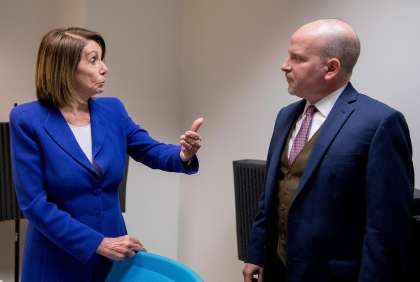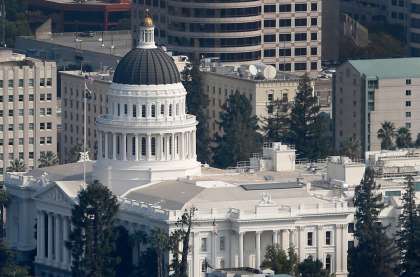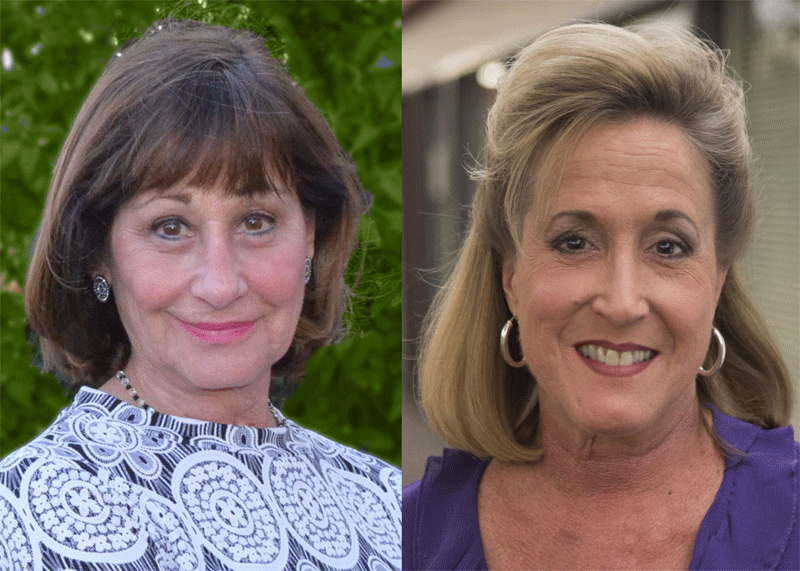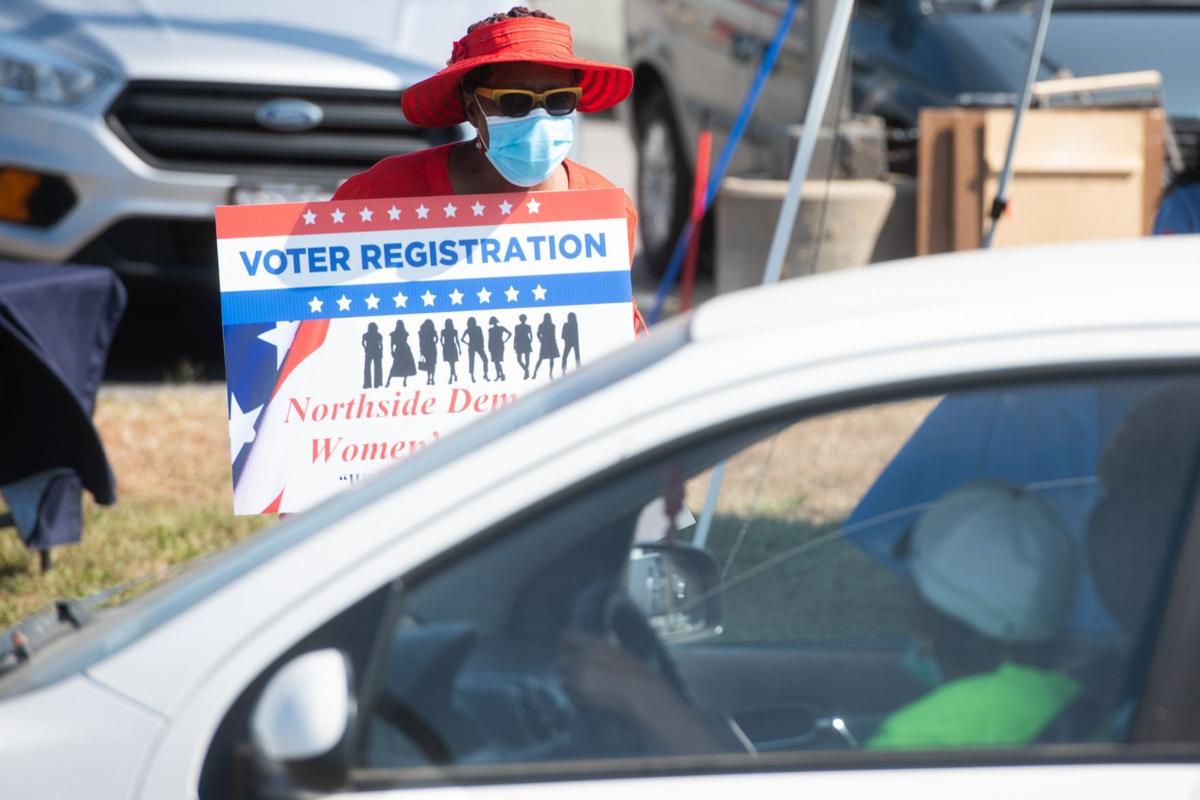Local // Local Politics

This inside-the-newsroom explainer article was written by Trapper Byrne, The Chronicle’s politics editor. He has been an editor at Bay Area newspapers for more than 20 years, and he oversees reporters who cover California government from Sacramento and national politics from San Francisco and Washington, D.C.
Each day, dozens of possible stories in state and national politics and government compete for Chronicle reporters’ attention, space on SFChronicle.com, and a spot in the print edition. In selecting which ones to cover, we try to anticipate not just what readers will find most important, but which stories they won’t find elsewhere.
Our guiding principle to choosing what to cover: How does this affect the Bay Area and California?
We know our readers have countless options for reading about the big story of the day, so we strive to give you something beyond the dueling partisan sound bites you’ll hear on cable news shows or read in politics-focused publications. If Congress is considering a coronavirus relief bill, we look for what will it mean for our schools, city services and the state safety net. If the California Legislature is considering ways to build more housing, we want to know how could it change the look, accessibility and diversity of Bay Area neighborhoods. The nation is quickly shifting to more mail elections, an area where California has a head start of years — how have the parties adapted to it here, and how might California’s experience translate in a presidential election?
In the state Capitol, reporters Alexei Koseff and Dustin Gardiner focus on not just legislators’ and the governor’s priorities, but on which interest groups are spending money and otherwise marshaling resources to try to win votes. In practice, most of the fights are over Democrats and their bills, so those are at the center of our coverage. This isn’t out of bias, but it is a recognition of a fact of life in Sacramento: Democrats control the Legislature by an overwhelming margin, and the governor and all constitutional office-holders are Democrats. Virtually every bill of consequence is the product of back-and-forth among Democrats, and lobbying groups spend their time and money mostly on Democrats and their proposals. Republicans’ opinions and criticisms matter, but their legislation seldom does because they don’t have the numbers to pass anything.
In Washington, where power is divided between the two parties, Tal Kopan reports on the actions and effectiveness of the senators California sends to the Capitol and the House members who represent the Bay Area. Nancy Pelosi, Kamala Harris, Dianne Feinstein, Barbara Lee, Ro Khanna and Zoe Lofgren — they’re just some of the Bay Area politicians whose national influence is our job to track and explain. When major legislation comes before Congress — a big tax cut, a multitrillion-dollar coronavirus stimulus package — we try to pull back from the process and explain how it will affect Bay Area residents and other Californians. But we don’t miss the chance to break national news — in recent months, Tal’s scoops have included stories on the promotions of immigration court judges who rejected virtually all applicants seeking asylum in the U.S., and President Trump confidant Rudy Giuliani’s capitalizing on his largely titular position as a White House cybersecurity adviser to market himself to private interests.
And we have two reporters who cover politics full time, Joe Garofoli and John Wildermuth. They cover the people and forces in the Bay Area that shape California and national politics, the races that can tip power one way or the other in Sacramento and Washington, and the moneyed interests that in turn try to shape those races and influence politicians. They also tell the stories of people who are on the outside of the political system and are trying to change it. They put into context what “defund the police” means and explain where the Black Lives Matter movement goes next. They are the first to introduce readers to Bay Area-rooted organizations like She the People, a political group focused on women of color. And they talk with activists and presidential candidates and behind-the-scenes organizers on The Chronicle’s “It’s All Political” podcast that Garofoli hosts.

As the politics team’s editor, I’m responsible for setting the daily and longer-term agenda and I oversee and edit most of the coverage. Every story, even the shortest, goes through at least two copy editors, and major pieces often are read by supervising editors. We’re checking for accuracy, of course, but we’re also checking for fairness and balance.
In all our coverage, we commit to being fair, which is not always the same thing as standing on the sidelines. Being fair requires that when we quote someone making an assertion, an accusation or a boast, we check it against the facts and report what we find. When called for, we give context. Our job is to report, but not to transcribe.
We commit to being balanced, which is not always the same thing as giving equal time and equal space to both sides. It does mean reaching out to both sides for their version and opinions. It may be that equal space is needed to spell out each side’s story, but there are also instances in which explaining or analyzing one set of arguments requires more room.
Reporters and editors on the politics team are entitled to their personal opinions, but those have to be checked at the door. They can be registered to vote, with party affiliations. They can cast ballots. But when it comes to political involvement, that’s as far as they can go.
The Chronicle has firm rules against journalists’ involvement in political campaigns and causes — reporters and editors cannot make donations to a candidate or campaign, participate in rallies or do political work of any kind. They cannot cover any campaign or legislative issue in which a relative is involved, and of course they cannot be involved themselves. They must refrain from taking sides on social media or posting anything that goes beyond what they could fairly write in a story. That also goes for media appearances — we encourage reporters to share their knowledge and expertise, but not their personal views.
As with all Chronicle pieces, every story the politics team writes has the reporter’s email contact and Twitter contact. We need your feedback, criticism and story tips. In these days of limited face-to-face interaction and remote politicking, it’s all the more important to hear your thoughts on what we’re doing well and where we could do better.
You can contact us here:
• Trapper Byrne: tbyrne@sfchronicle.com, @trapperbyrne
• Joe Garofoli: jgarofoli@sfchronicle.com, @joegarofoli
• John Wildermuth: jwildermuth@sfchronicle.com, @jfwildermuth
• Tal Kopan: tal.kopan@sfchronicle.com, @TalKopan
• Alexei Koseff: alexei.koseff@sfchronicle.com, @akoseff
• Dustin Gardiner: dustin.gardiner@sfchronicle.com, @dustingardiner


